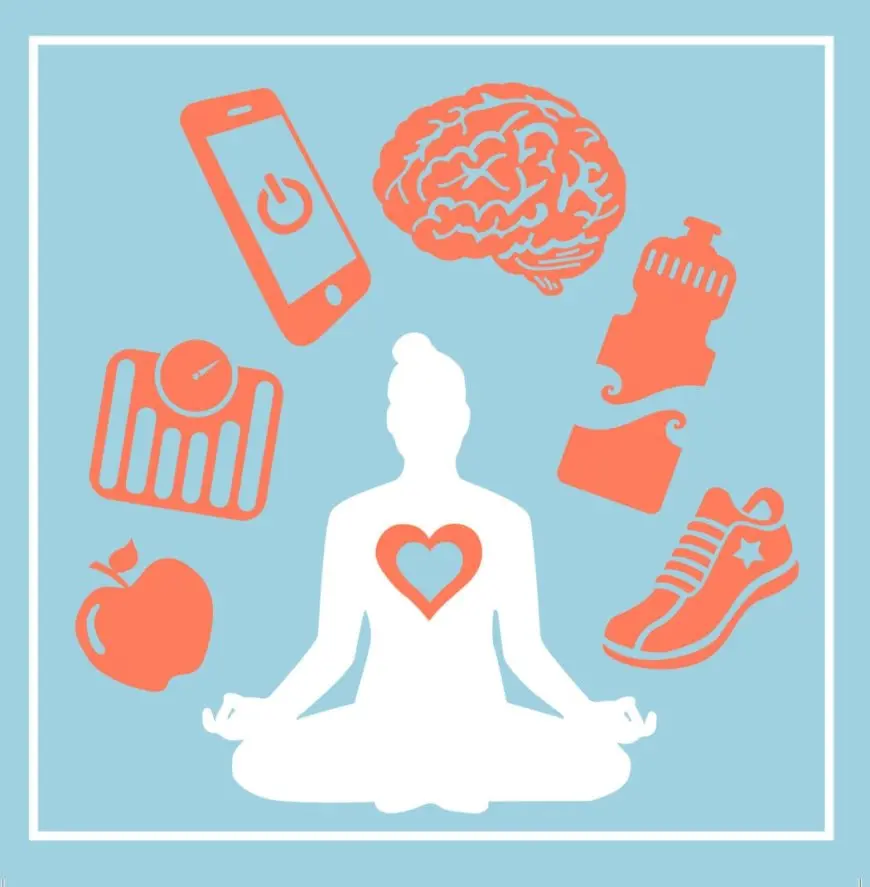Daily Habits That Improve Mental Health
Daily Habits That Improve Mental Health

Mental health plays a crucial role in our overall well-being, and it is essential to prioritize it just as we would our physical health. While seeking professional help and engaging in therapy are vital components of mental health management, daily habits also have a significant impact on how we feel and cope with life's challenges. Here are some practical daily habits that can boost mental health, enhance emotional resilience, and contribute to a more balanced life.
1. Exercise Regularly
Physical activity is one of the most effective ways to improve mental health. Regular exercise, whether it’s walking, jogging, yoga, or strength training, promotes the release of endorphins, which are the body’s natural mood elevators. Studies have shown that exercise can help reduce symptoms of depression, anxiety, and stress. Even a short daily walk can improve mood, boost energy levels, and increase mental clarity. By making exercise a daily habit, you not only improve your physical health but also strengthen your mind.
2. Practice Mindfulness and Meditation
Mindfulness is the practice of staying present and fully engaged in the moment, without judgment. By incorporating mindfulness into your daily routine, you can reduce stress, improve focus, and cultivate a sense of calm. Meditation, a form of mindfulness, can further help in managing negative thoughts and emotions. Practicing mindfulness techniques such as deep breathing exercises or body scans can activate the parasympathetic nervous system, leading to relaxation and reduced anxiety.
3. Establish a Routine
Having a structured daily routine helps create a sense of stability and predictability. When we know what to expect from our day, it reduces feelings of chaos and uncertainty that can contribute to anxiety. Establishing a daily schedule for work, meals, exercise, and relaxation also gives us a sense of accomplishment, as we are able to achieve our goals and responsibilities. A well-organized day can provide both mental and emotional clarity, reducing overwhelm and fostering a positive mindset.
4. Get Enough Sleep
Sleep and mental health are deeply connected. Lack of sleep can negatively impact your mood, increase irritability, and contribute to mental health issues like anxiety and depression. A good night’s rest helps regulate emotions, improve cognitive function, and reset your body for the challenges of the next day. Aim for 7-9 hours of quality sleep each night, and make sleep hygiene a priority by avoiding screens before bed and creating a calm, dark sleep environment.
5. Stay Connected with Others
Social connection is a fundamental aspect of good mental health. Regularly reaching out to friends, family, or colleagues can provide emotional support, reduce feelings of loneliness, and improve mood. Sharing thoughts and experiences with others helps alleviate stress and fosters a sense of belonging. Make time for meaningful social interactions, whether through phone calls, text messages, or face-to-face meetings, to nurture your relationships and enhance your mental well-being.
6. Engage in Hobbies and Creative Outlets
Taking time to engage in activities you enjoy can provide a sense of fulfillment and relaxation. Whether it's painting, writing, gardening, playing an instrument, or cooking, creative outlets help you express yourself, reduce stress, and boost self-esteem. Hobbies allow you to focus on the present moment and take a break from daily pressures. They can also increase feelings of accomplishment and provide a mental break from daily responsibilities.
7. Limit Social Media and Screen Time
In today’s digital age, excessive screen time and social media use can negatively affect mental health. Constant exposure to online content, especially harmful or negative news, can increase anxiety, stress, and feelings of inadequacy. Set boundaries around your screen time, and take breaks from social media to protect your mental health. Instead, use your free time to engage in activities that nurture your mind, such as reading, exercising, or spending time outdoors.
8. Eat a Balanced Diet
What we eat plays a significant role in our mental health. A nutritious, balanced diet can improve mood, enhance brain function, and provide energy. Foods rich in omega-3 fatty acids, antioxidants, and vitamins, such as fatty fish, leafy greens, and berries, have been shown to support mental health. Try to limit processed foods, sugary snacks, and caffeine, as they can contribute to mood swings, irritability, and energy crashes.
9. Practice Gratitude
Cultivating a daily gratitude practice can shift your focus from negative thoughts to positive ones. Taking a few minutes each day to reflect on the things you are grateful for—whether it's your health, relationships, or achievements—can increase feelings of happiness, reduce stress, and improve overall mental well-being. Keeping a gratitude journal, where you write down three things you are thankful for each day, can be a powerful tool to reframe your mindset.
10. Seek Professional Help When Needed
While daily habits can significantly improve mental health, it's important to recognize when professional support is needed. Speaking to a therapist, counselor, or mental health professional can provide valuable insights, tools, and coping mechanisms for dealing with more significant challenges. If you're struggling with mental health issues, don't hesitate to seek help. Therapy, whether individual or group, can be a powerful way to gain emotional support and work through personal challenges.
Mental health is an ongoing journey that requires consistent effort and care. By adopting these daily habits—regular exercise, mindfulness, a healthy routine, quality sleep, and meaningful connections—you can significantly improve your mental well-being. Remember that even small changes can make a big difference over time. Start with one or two habits and gradually incorporate more as you progress. With patience and perseverance, you can build a solid foundation for better mental health and emotional resilience.







